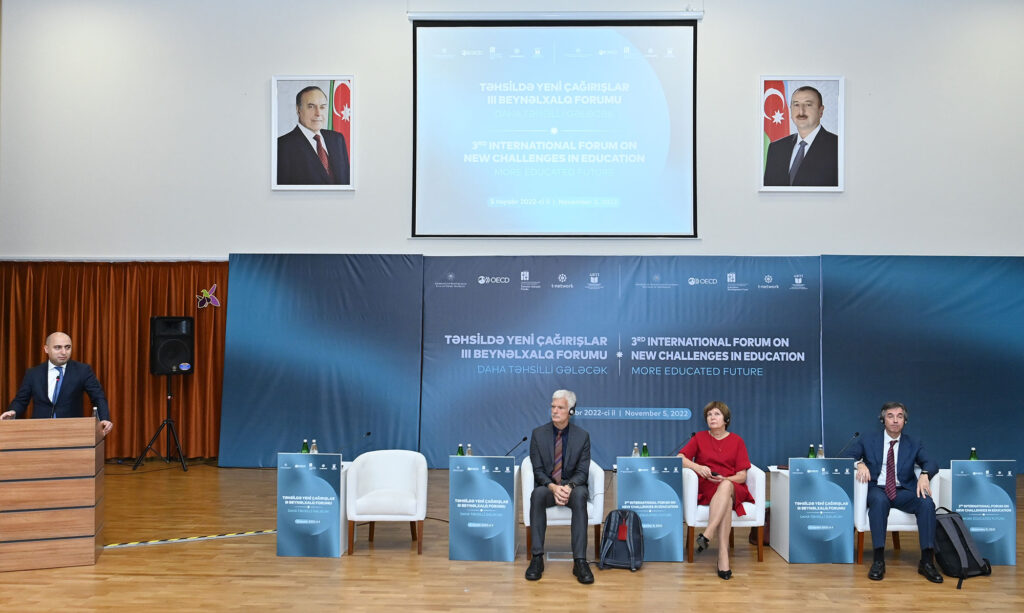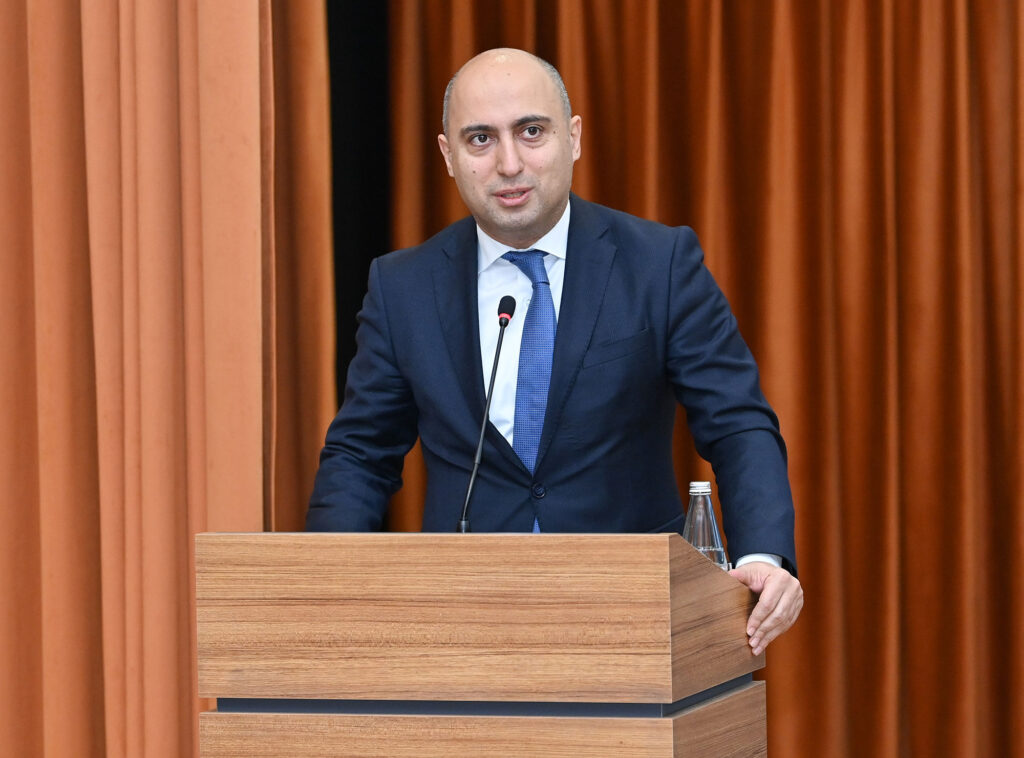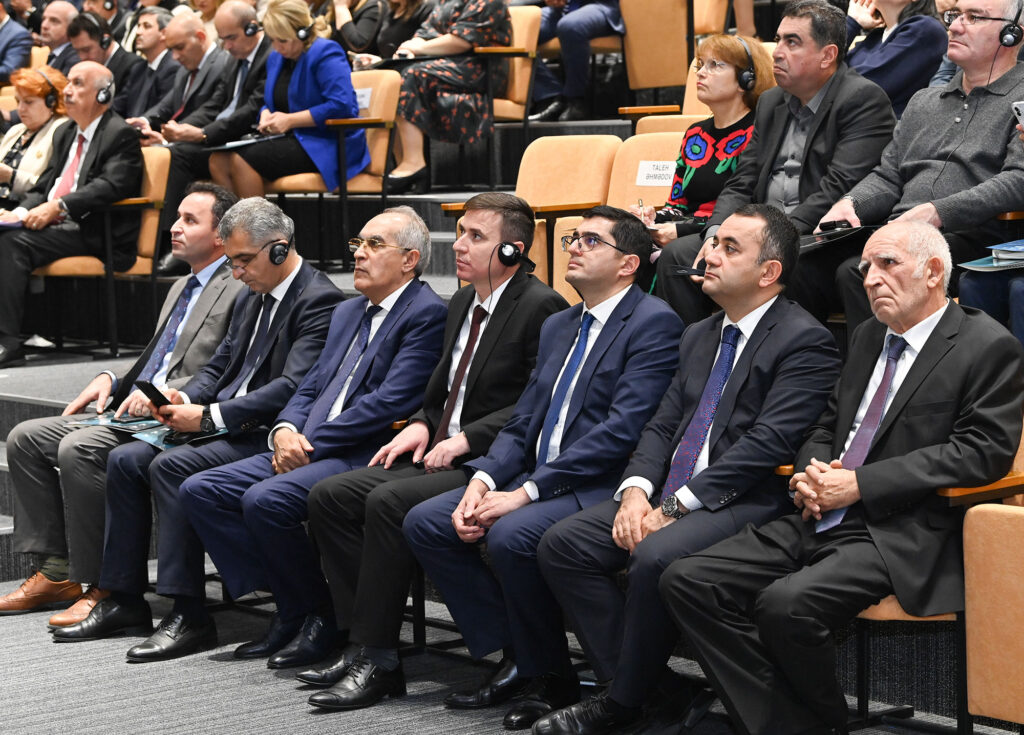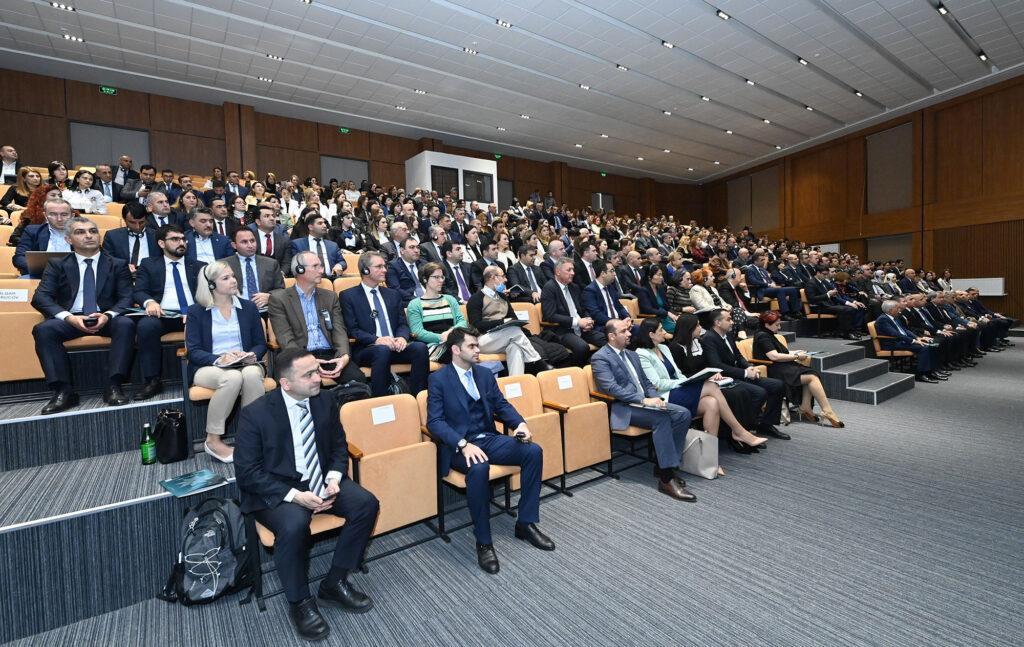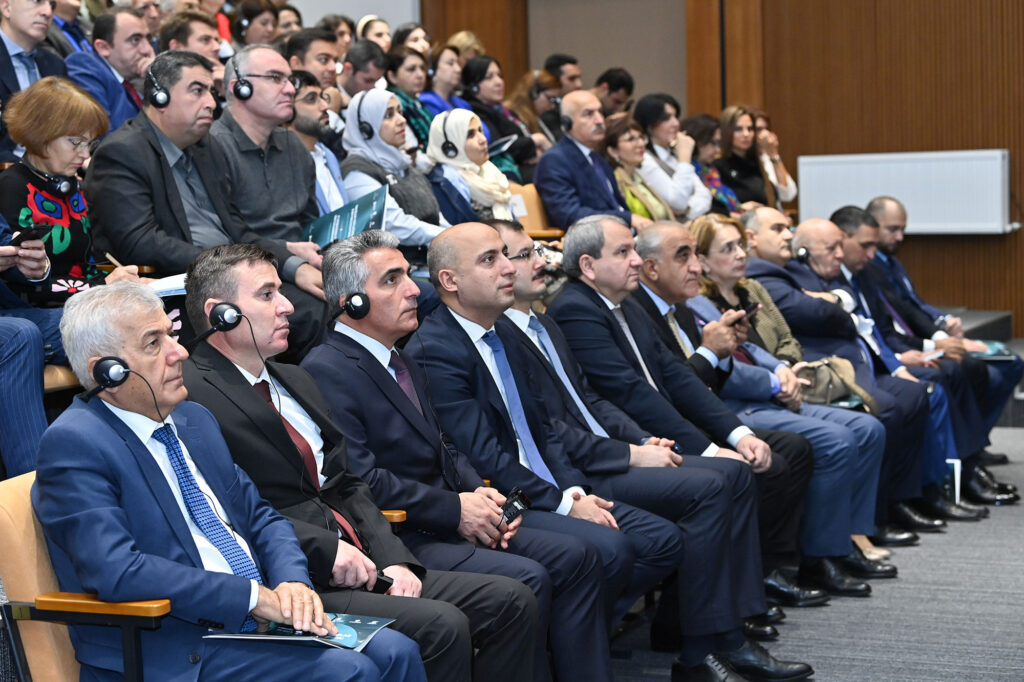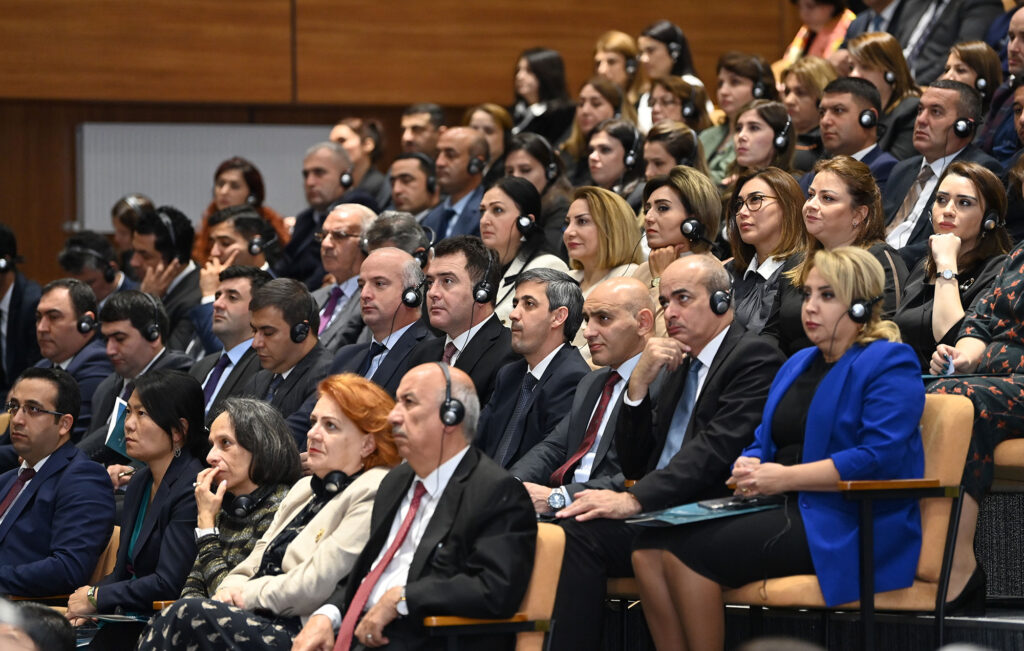The international forum was held in a hybrid format organized by the T-Network educators’ experience and communication platform, the Education Institute of Azerbaijan, in collaboration with the Ministry of Science and Education of Azerbaijan, the Organization for Economic Co-operation and Development (OECD), and the Education Development Fund.
The main purpose of the forum, which was attended by Emin Amrullayev, the Minister of Science and Education, OECD representatives, representatives of about 20 countries, rectors, professors, science and education workers, teachers, school directors, and other guests, was to discuss new challenges in education, to review the educational requirements of the new age.
The Minister of Science and Education Emin Amrullayev, who delivered the opening speech, was the first to note the importance of the forum for the educational community.
Speaking about international assessment studies, the Minister said that participation in these studies makes us a member of the global education system, and also creates an opportunity to exchange ideas with colleagues from different countries. The Minister emphasized that the mentioned forum is of this kind.
Emin Amrullayev noted that over the past few years, the PISA international assessment study has been identified as one of the main goals of education development in the country. According to the Minister, PISA gives us not only figures but also quite serious science and evidence.
In his speech, the Minister of Science and Education also noted that the inclusion of education as a separate section in the document “Azerbaijan 2030: National Priorities for Socio-Economic Development” and the definition of goals sets concrete goals for educators.
Emin Amrullayev concluded his speech by wishing the forum every success.
Then Stefania Giannini, UNESCO Assistant Director-General for Education, who joined the forum in an online format, said that education is a social service and using the digital revolution for education should be the main goal. Stefania Giannini added that experienced, qualified teachers in the auditorium should play a key role as administrators of the education system.
Stefania Giannini highly praised the inclusion by the Azerbaijani government of a section on education in the document “Azerbaijan 2030: National Priorities for Socio-Economic Development” and the work being done in this area.
The forum’s keynote speaker, Andreas Schleicher, Special Adviser to the OECD Secretary-General on Education Policy and Director of Education and Skills, then gave a presentation on “How to prepare learners for the future?”.
Speaking about the education of the future, Andreas Schleicher noted that schools have already embraced digital transformation, which is changing the nature as well as the tools of learning. Referring to the use of digital technologies in the learning process, Andreas Schleicher said that this makes learning more engaging and effective. The teacher’s role in this process remains high.
Luis Pereira dos Santos, Chairman of the Board of the Portuguese Institute of Educational Assessment, PISA Board Representative in Portugal, Maye Kitsing, Adviser to the General Education Department at the Estonian Ministry of Education and Research, Country Coordinator for PISa, Mario Piacentini, Senior PISE Analyst, Tracy Burns, Director of Research at the US National Center for Education and the Economy, Stéphane Vincent Lankren, OECD Senior Analyst and Deputy Director of the Centre for Educational Research and Innovation, and Mark Fuster, Analyst at the OECD Centre for Educational Research and Innovation made presentations at the forum.
The presentations were about the topics such as “What should the school of the future be like?”, “Global trends shaping education,” “Is digitalization in education the final solution?” and other topics.
The forum discussed questions such as “How should learning be organized in a digital world?”, “What new school models are needed?”, “What will be the future of the learning process and content in education?”; and “How do we prepare a man for the future?”
